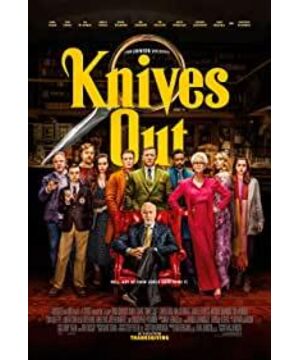The reason why I read it is mainly because I read a lot of people's comments about the logic and rigorousness, and I only read it when there are no bugs.
After reading it.
Really disappointed...
This is called no bug script rigorous? ? ?
The core trick has serious bugs.
It's the part where the old man pretended to commit suicide. It makes logical sense to pretend to commit suicide to whiten the heroine. But the behavior is completely unreasonable, all loopholes.
If you want to make a thief complex trick, you should consider two directions, one is the feasibility of the trick, and the other is whether there are other better tricks. Too bad, neither of these are possible at all.
In terms of feasibility, for example, the heroine takes so much effort to come back, and the heroine complains many times in the movie "It's too difficult, are you kidding me, it's difficult to do it" and so on. And from the follow-up point of view, this trip is indeed full of loopholes, leaving countless evidences, and it is even more impossible for the old man to predict in advance that the heroine will be called as an assistant, and have the opportunity to deal with the evidence.
And in the movie, all the evidence was not dealt with at all. For example, the heroine did not wear gloves when she climbed the shelf, leaving fingerprints along the way. The heroine has just walked through the mud pit, and the mud on the sole of the shoe will definitely get on the shelf, window sill, carpet, etc. .
And even if the hostess goes home, even if the manor surveillance can't see it, but the hostess's house is in the city, once the police check the traffic monitoring with dim sum, they will find that there is at least half an hour from the time the hostess leaves to the time when the hostess returns home. explain. And there are also various unfavorable factors such as the shelf is broken and not climbed up, being seen by other people, and going downstairs and being recognized as not an old man (it was seen in the movie, but it was mistaken) and so on.
That is to say, whether in the movie or in reality, the heroine has left countless evidences along the way to prove that the heroine lied... In addition, the heroine's own peculiar constitution, and once the heroine is proved to be lying, she will immediately change. As the biggest suspect, what's the use of the old man's arrangement?
What is the purpose of the old man devising such a complex and risky ruse? Let the heroine play the role of herself and prove that her true death time is after the heroine leaves, so that the heroine will have an alibi... This idea is fine, but the existing plan is not feasible at all. And there are completely simpler alternatives.
Because it's very simple, it doesn't take so much trouble to create an alibi for the heroine. Because the old man's purpose is to let people know that when the heroine left, he was still alive.
To understand this, there is a way. For example, if you go out to see the heroine by yourself, even if you are worried about sudden death, there are other ways. For example, after the heroine goes out, she will make a farewell call to her children and then commit suicide (the old man has a phone at hand), and the call records are more perfect. proof.
As for the layout of the scene, I wouldn't say that cutting one's own throat is not difficult in reality. If the old man wants to eliminate the suspicion of the heroine to the greatest extent, he should pretend to be injecting himself with medicine, otherwise he will be revealed in an autopsy.
Even without considering the issue of the method of death, if a person wants to prove that he committed suicide, he can leave a little more evidence. For example, in reality, the most important thing to determine suicide is the suicide note. The old man can take the time to write a will with one line, such as "I am very disappointed with you, I decided to die, but none of you want to get Lao Tzu's money", which also corresponds to the will. Or more simply, use your phone to record your own suicide and last words.
Or, the old man himself was in a perfect secret room, with no windows and no openings. Locking the door by himself also greatly increased the possibility of being judged as suicide.
If you just let the inheritance go smoothly and rule out the suspicion of the heroine, that's enough.
I saw some explanations that the old man guessed that someone had changed the medicine based on the fact that there was no accident in 5 minutes or something.
You tell me what the purpose of the old man's suicide was?
According to a certain answer, it is for the smooth execution of the will and at the same time to teach the family a lesson. It has to be said that the risk is too great. In the play, because we accepted the setting of "the heroine will vomit if she lies," it is understandable. But in court... Will this unheard-of setting really be challenged? Is it possible that the female protagonist is only prone to vomit, and she can vomit when she wants to vomit? (It just so happens that I have such a physique, I don’t need to buckle my throat, I can vomit when I want to). Or the police are just sloppy, and when they find the evidence, they almost immediately decide that the heroine is the murderer? Obviously this is a great risk.
If it is really mainly to ensure the smooth execution of the will, then of course the most stable method is to live by yourself and hand over it when you are alive.
It is not impossible for the old man to use his life layout, but since the old man is one of the best detective novelists in the world, the layout of his life must be almost perfect, and there must be no obvious mistakes or self-defeating. Does this ending in the movie match? ? Obviously not. By the time the detective finally saw the test results, the detective had even determined that the heroine was responsible. That is to say, if it wasn't for a very coincidence that the female housekeeper left an extra test report, then after the original version was destroyed by the real murderer, the ending would be the murder of the real murderer and the heroine taking the blame... and then forcefully explain, could this be A top mystery novel with life layout?
So if you look back now, if the old man really sees through everything, he will choose the plan with the least risk and the least change, that is, to survive and ensure a smooth handover, or choose a plan with a lot of uncertainty and great risks, and may even cheat women Lord's plan?
As for what to teach the family... First, the murderer's modus operandi has no evidence found in the play, it's all reasoning. The worst angle, the murderer said, even if I changed the medicine, I didn't kill the old man, what can you do to me?
What did you teach other family members? You have given all your inheritance to a nurse, is there any other lesson?
Even the murderer himself, the old man in reality could not have expected the murderer to kill the housekeeper. In the movie, if he hadn't admitted to killing the housekeeper, it would have been an attempted murder at most, and the sentence was very light. It might be fine to find a good lawyer.
Obviously, the screenwriter first had the core idea and then gradually perfected the plot, but not all ideas were smoothly transformed into the script. Now this kind of forced creation is more like a new one. Just like someone complained, the original reasoning was to build a secret room and then kill people in it. On the other hand, the new character is to kill a person first, and then build a secret room on top of the corpse. This movie is exactly that.
View more about Knives Out reviews











